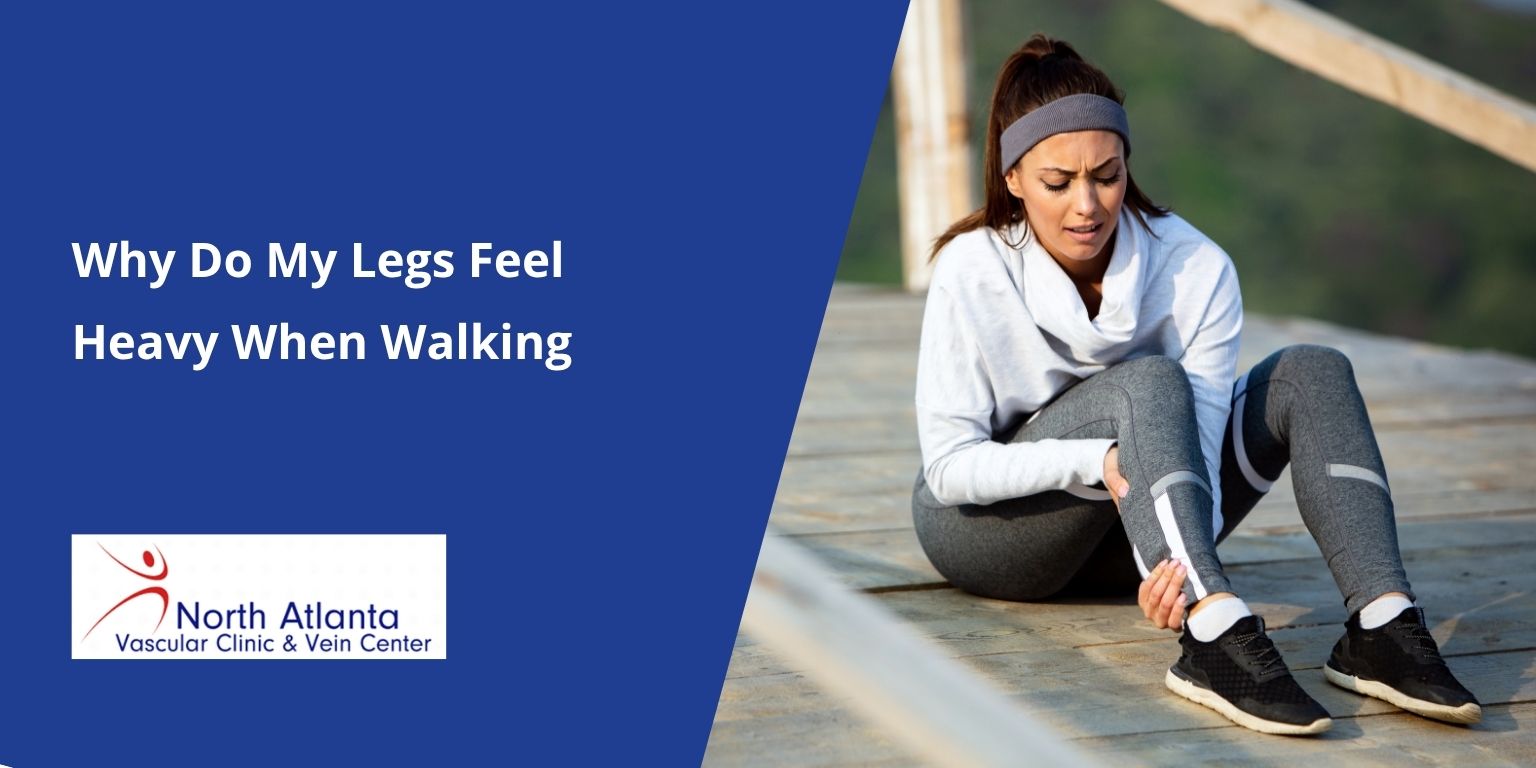



Ever noticed your legs feel unusually heavy when walking, even on short strolls? You’re not alone. Many people experience this strange sensation, often described as heavy, aching legs and fatigue that seems to come out of nowhere. While it may seem minor at first, ignoring the feeling can lead to more serious health issues. Understanding why your legs feel heavy when walking can help you take the right steps toward relief and prevention.
The sensation of heavy legs when walking is more common than most people think. It can be mild and occasional or persistent and exhausting. Some people say, “My legs feel heavy when I walk,” while others describe it as, “My legs are so heavy I can barely lift them.” Either way, it can significantly affect your mobility and quality of life.
This heaviness can be due to a number of underlying causes, from circulation problems to nerve issues, and early attention can make all the difference in treatment.
When blood doesn’t flow efficiently to your lower limbs, your muscles receive less oxygen and nutrients. This causes fatigue and heaviness, especially after walking. A condition called peripheral artery disease (PAD) can narrow the arteries and make walking uncomfortable or painful over time. Poor circulation often leads to heavy aching legs and fatigue that worsens with activity and improves with rest.
With CVI, the veins in your legs struggle to return blood back to the heart. This causes blood to pool in the legs, leading to swelling and a persistent feeling of heaviness. If your legs feel heavy after walking or you notice visible veins, skin discoloration, or frequent swelling, CVI could be a culprit.
Sometimes the cause is simpler. If you’ve been walking long distances, working on your feet all day, or have poor posture, your leg muscles can become tired. This fatigue leads to soreness that might make your legs feel heavy when walking. However, if this becomes frequent, it could signal a deeper issue that requires medical attention.
Certain nerve-related issues like neuropathy or sciatica can produce symptoms such as numbness, tingling, and leg heaviness. People with diabetes are particularly at risk of diabetic neuropathy, where damaged nerves lead to strange sensations and loss of leg strength.
Your muscles need adequate levels of iron, magnesium, and vitamin B12 to function properly. A lack of these nutrients may cause tiredness, cramping, and leg heaviness. If your legs feel heavy when walking and you’re also feeling weak, lightheaded, or out of breath, it may be worth checking your nutrient levels.
Sometimes the heaviness is caused by fluid buildup in your tissues. This may happen due to lymphatic system problems, heart disease, or kidney conditions. Lymphedema makes your legs look puffy, and they may feel stiff or difficult to move.
Occasional heavy legs after a long day aren’t usually a concern. But if you regularly think, “My legs feel heavy when I walk,” it may be time to talk to a doctor. Watch for:
These signs could indicate vascular or neurological issues that need prompt treatment.
There are several ways which help in preventing and treating heavy legs:
Wearing compression socks helps push blood back toward the heart, relieving symptoms of fatigue and heaviness. They are especially helpful for those with venous insufficiency or swelling.
If lifestyle changes and compression don’t help, it’s important to consult a vascular specialist. They may perform diagnostic tests like ultrasound or ABI (Ankle-Brachial Index) to check your circulation. Treatment options vary from medications to outpatient procedures, depending on the root cause.
Heavy, aching legs while walking might seem like a harmless annoyance, but they can be a warning sign of something deeper. From poor circulation and vein issues to nerve damage and nutrient deficiencies, many factors can contribute to that dragging sensation in your legs. By understanding the root causes and taking early action you can prevent the discomfort from becoming a long-term problem.
If your legs feel heavy even after short walks or the fatigue worsens over time, it could point to a vascular issue. Our specialists at North Atlanta Vascular Clinic are here to help you. With advanced diagnostics and personalized treatment plans, we can pinpoint the cause and get you back to your best. Schedule your consultation today.
This could be a sign of circulation issues, such as PAD or venous insufficiency, or muscle fatigue from poor posture or overuse.
No, persistent heaviness may signal a chronic condition and should be evaluated by a medical professional.
Yes, poor blood flow from PAD or CVI can reduce oxygen supply to muscles, causing heaviness and fatigue.
You should see a vascular specialist, particularly if symptoms are recurring or worsening. They can identify any underlying blood flow or vein-related issues.